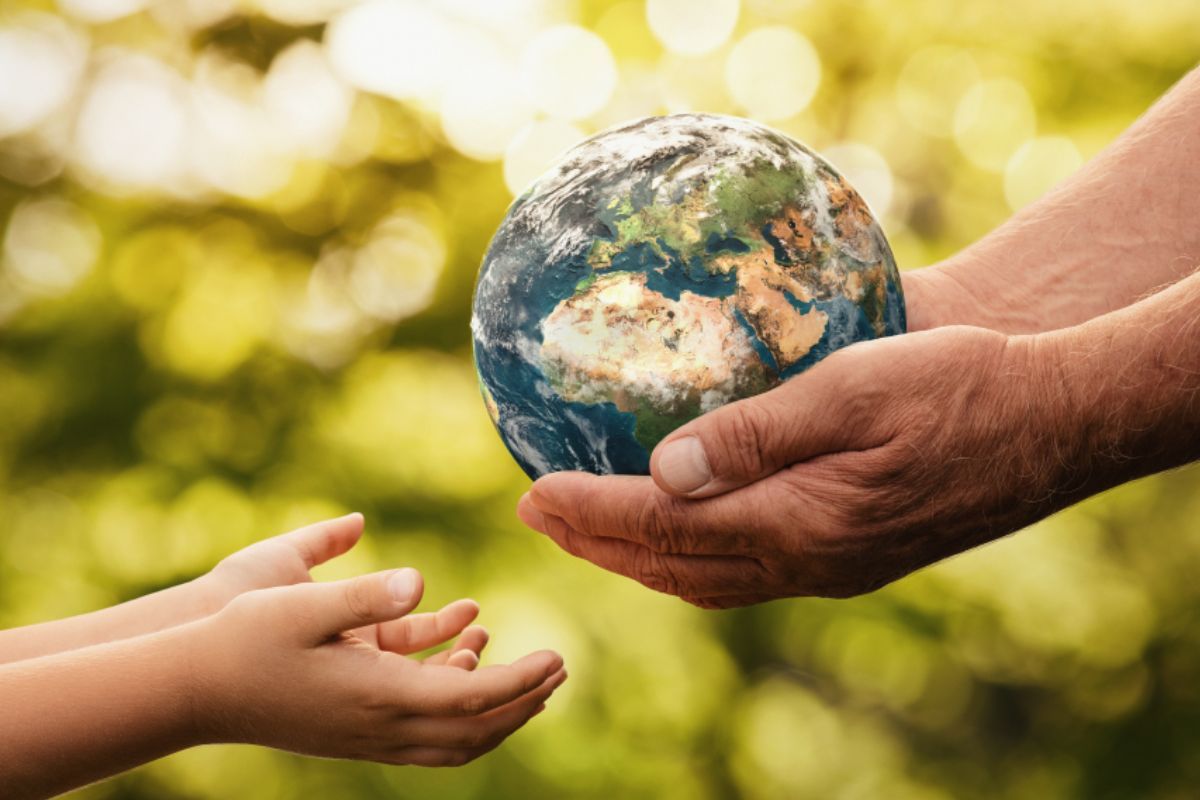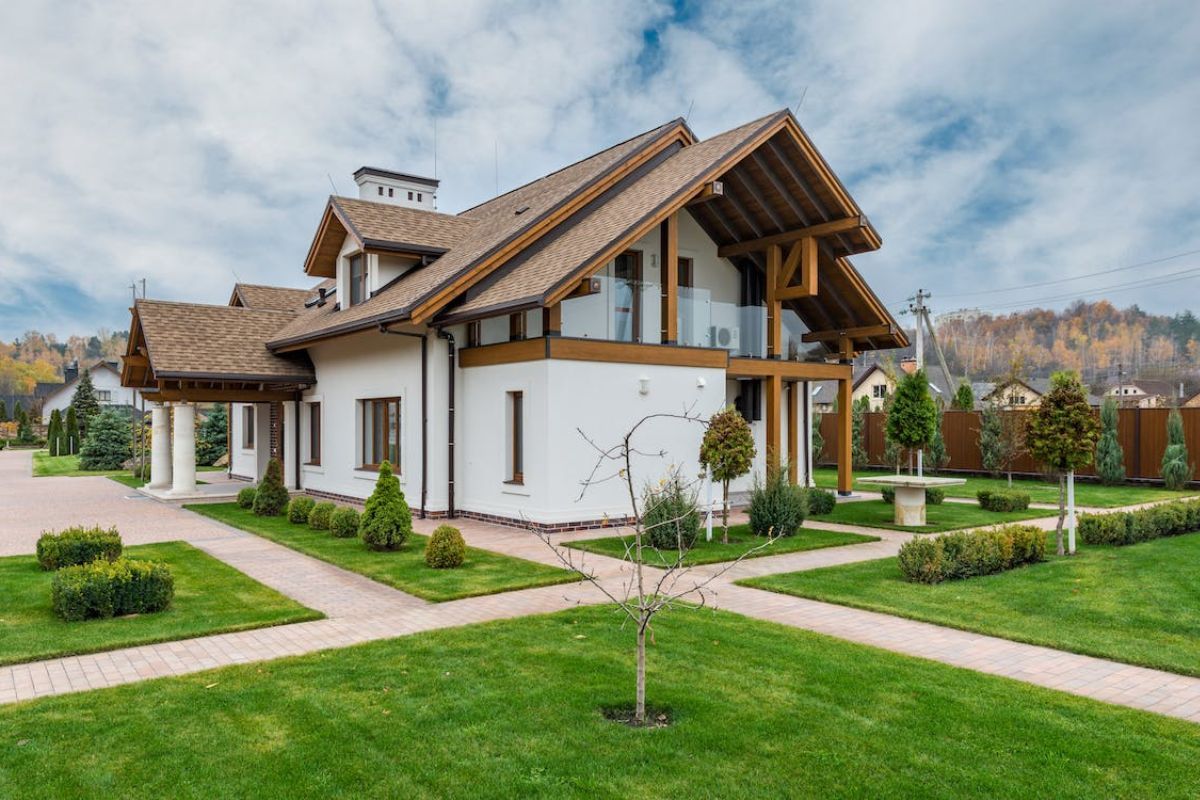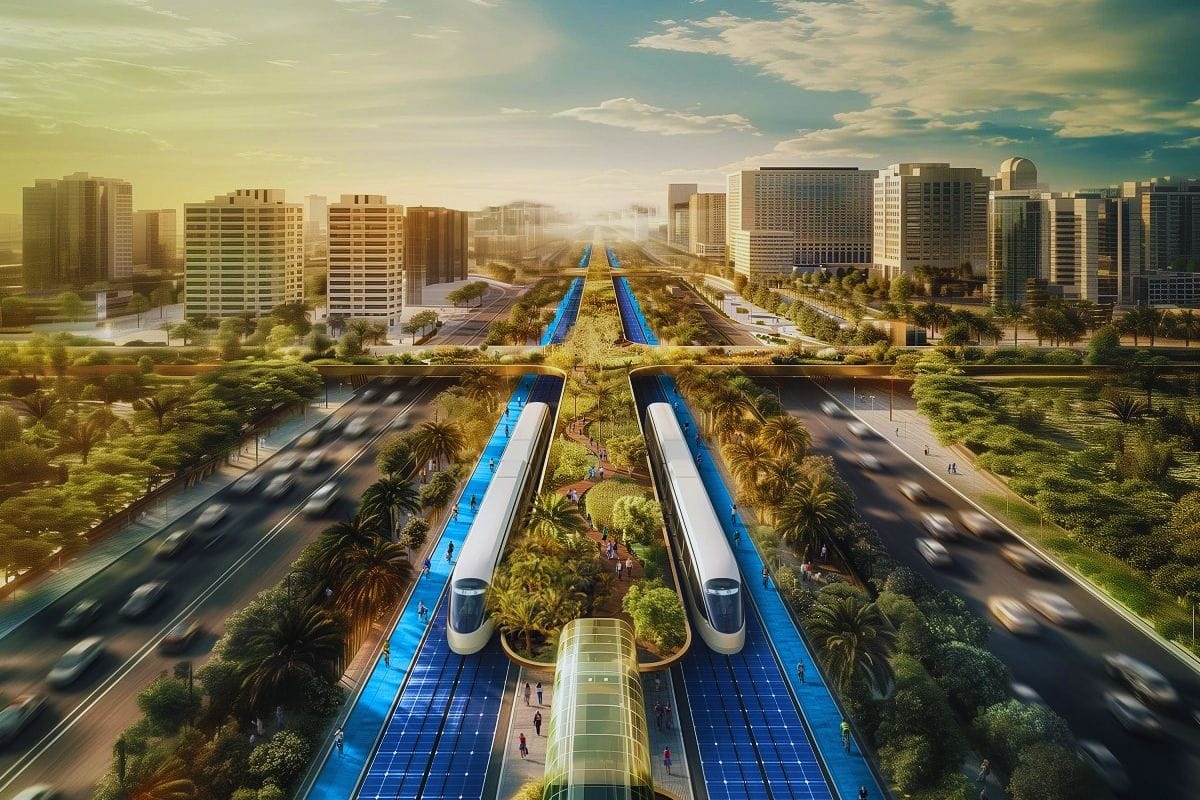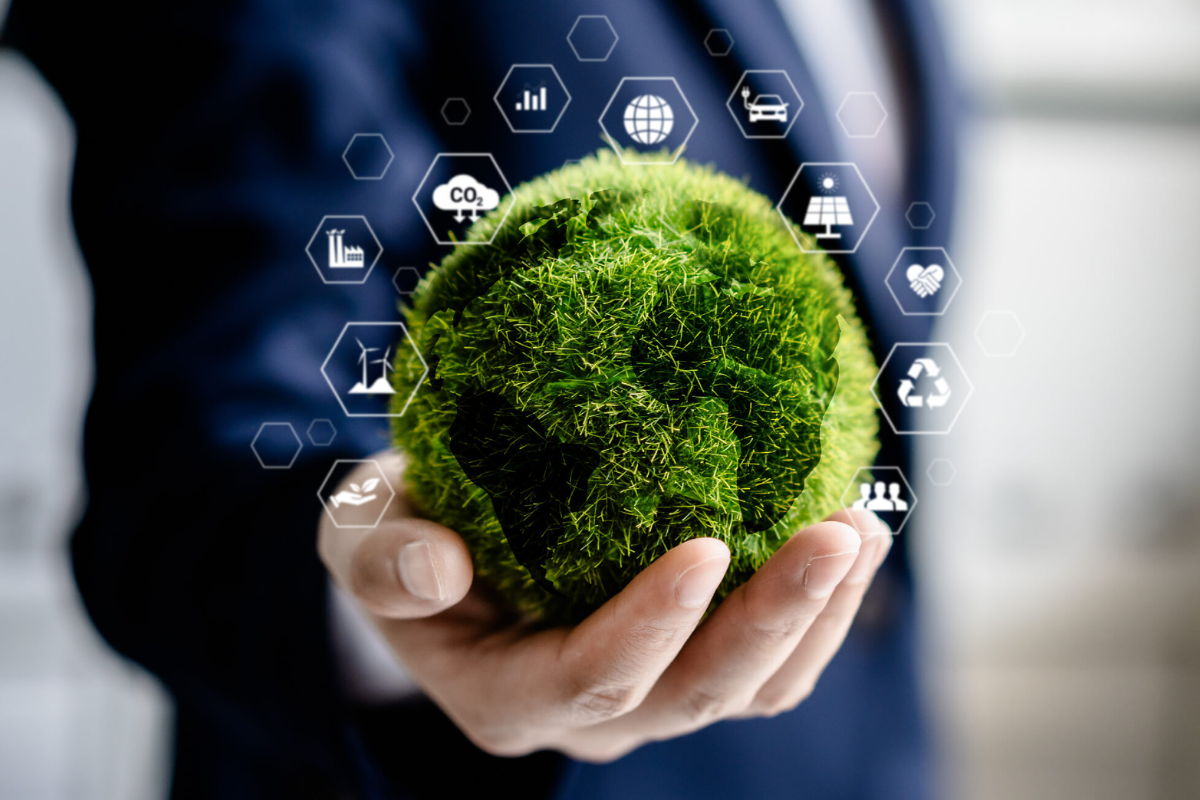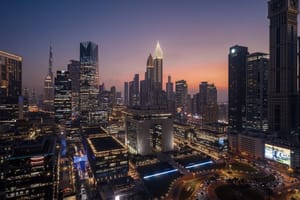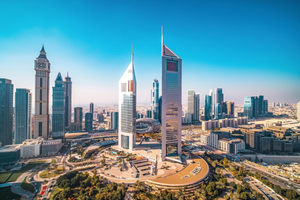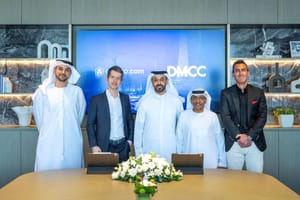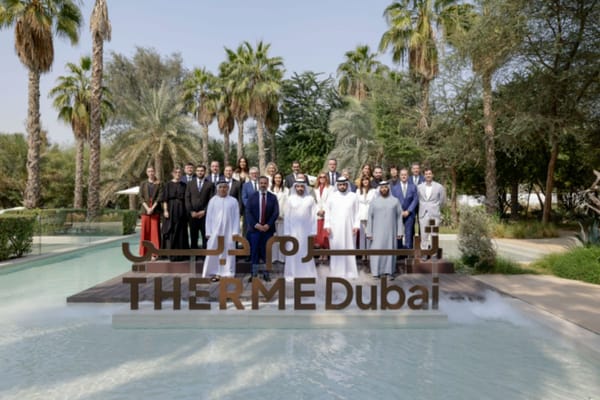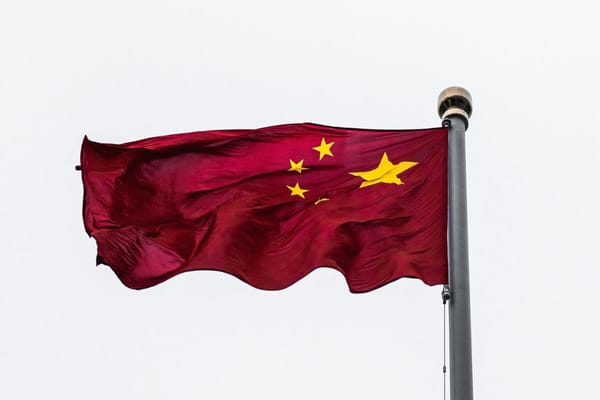Dubai’s transformation into a global business hub is driven by innovation and sustainability, aligning with the UAE’s goal of net-zero carbon emissions by 2050. The Green Economy for Sustainable Development initiative positions the nation as a leader in green technologies, spanning energy, agriculture, and investment.
Dubai is actively reducing CO₂ emissions through renewable energy projects, smart cities, and clean energy targets, aiming for 75% renewable energy by 2050. Green business practices are becoming essential, helping companies comply with regulations, attract eco-conscious consumers, and gain a competitive edge.
As Dubai moves toward its 2025 sustainability goals, integrating green strategies remains central to its vision. This article explores key trends shaping Dubai’s business landscape, from renewable energy adoption to circular economy initiatives and green finance.
Renewable Energy Integration in Businesses
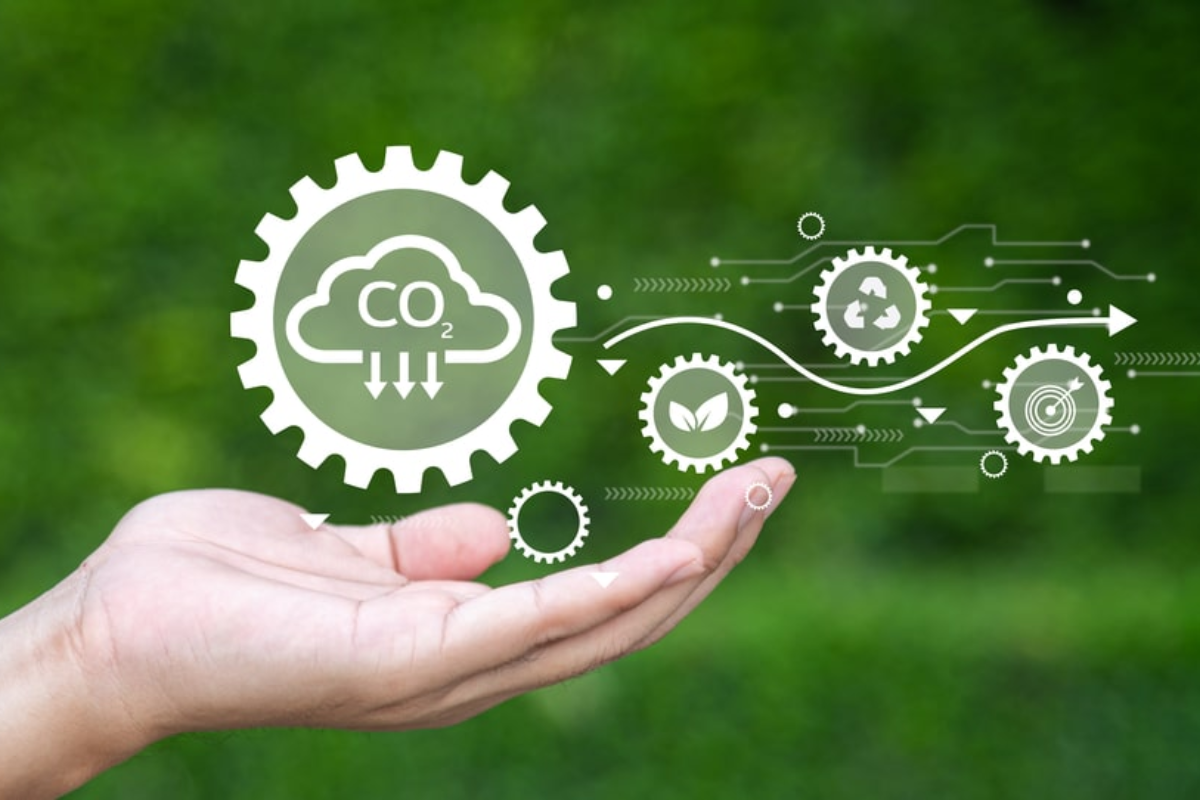
Dubai is witnessing a significant shift as businesses increasingly integrate renewable energy solutions into their operations, driven by both environmental commitments and economic incentives.
Corporate Adoption of Solar and Wind Energy
Investments in On-Site Renewable Installations:
A notable example is Emirates Airlines, which, in partnership with Etihad Clean Energy Development, has initiated a large-scale solar energy project at its Engineering Centre in Dubai. This project involves the installation of approximately 39,960 solar panels, aiming to generate over 34 million kilowatt-hours of electricity annually. This initiative is expected to reduce carbon dioxide emissions by about 13,000 tonnes each year, underscoring the airline's commitment to sustainable practices.
Partnerships with Renewable Energy Providers:
In the realm of hospitality, FIVE Holdings has taken significant steps toward sustainability by securing International Renewable Energy Certificates (I-RECs) to achieve 100% renewable electricity for its Dubai hotels. This accomplishment was made possible through collaboration with the Mohammed bin Rashid Al Maktoum Solar Park and the Dubai Electricity and Water Authority (DEWA), highlighting the effectiveness of partnerships in advancing corporate renewable energy goals.
Incentives for Renewable Energy Use
Government Initiatives Encouraging Adoption:
The UAE government has been proactive in promoting renewable energy through substantial investments and strategic planning. In 2023, the UAE updated its National Energy Strategy, announcing plans to invest $54 billion in energy and renewable sources over the next seven years to meet growing energy demands. This strategy aims to achieve an energy mix that includes 44% clean energy by 2050, providing a clear framework for businesses to align with national sustainability objectives.
Increase in Corporate Renewable Energy Adoption Rates:
The UAE's commitment to renewable energy is reflected in its ambitious targets and investments. The country has announced intentions to invest up to $54 billion to triple its supply of renewable energy over the next seven years, with the overarching goal of generating 70% of its power from renewables by 2050. This substantial investment underscores the nation's dedication to transitioning towards sustainable energy sources.
Sustainable Real Estate and Green Building Practices

Dubai has experienced a significant surge in eco-friendly real estate developments, reflecting a growing commitment to sustainability within the construction sector.
Growth of Green Real Estate Investments
The green building market in the Gulf Cooperation Council (GCC), which includes the UAE, is projected to reach approximately USD 39.72 billion by 2025, with an anticipated compound annual growth rate (CAGR) of 10.96% leading up to 2030.
In Dubai, the implementation of the Al Sa'fat green building rating system has streamlined sustainable construction processes. The Dubai Green Building System has achieved a reduction in carbon dioxide emissions of approximately 2.28 million metric tonnes to date.
Implementation of Green Building Standards
Dubai has been proactive in adopting internationally recognized green building standards, particularly the Leadership in Energy and Environmental Design (LEED) certification. The city boasts the highest number of LEED projects in the UAE, with 348 certified buildings.
Case Studies of Notable Green Buildings in Dubai:
- The Edge Building: Located in Dubai Internet City, The Edge Building has been awarded the prestigious LEED Gold certification, underscoring its commitment to sustainable design and operations.
- The Sustainable City: Developed by Diamond Developers, The Sustainable City is an award-winning mixed-use and residential project designed to be the first operational Net Zero Energy city in Dubai. Established in 2015, it spans 46,000 square meters and is home to nearly 3,000 residents, exemplifying sustainable urban living.
Circular Economy and Waste Reduction Initiatives
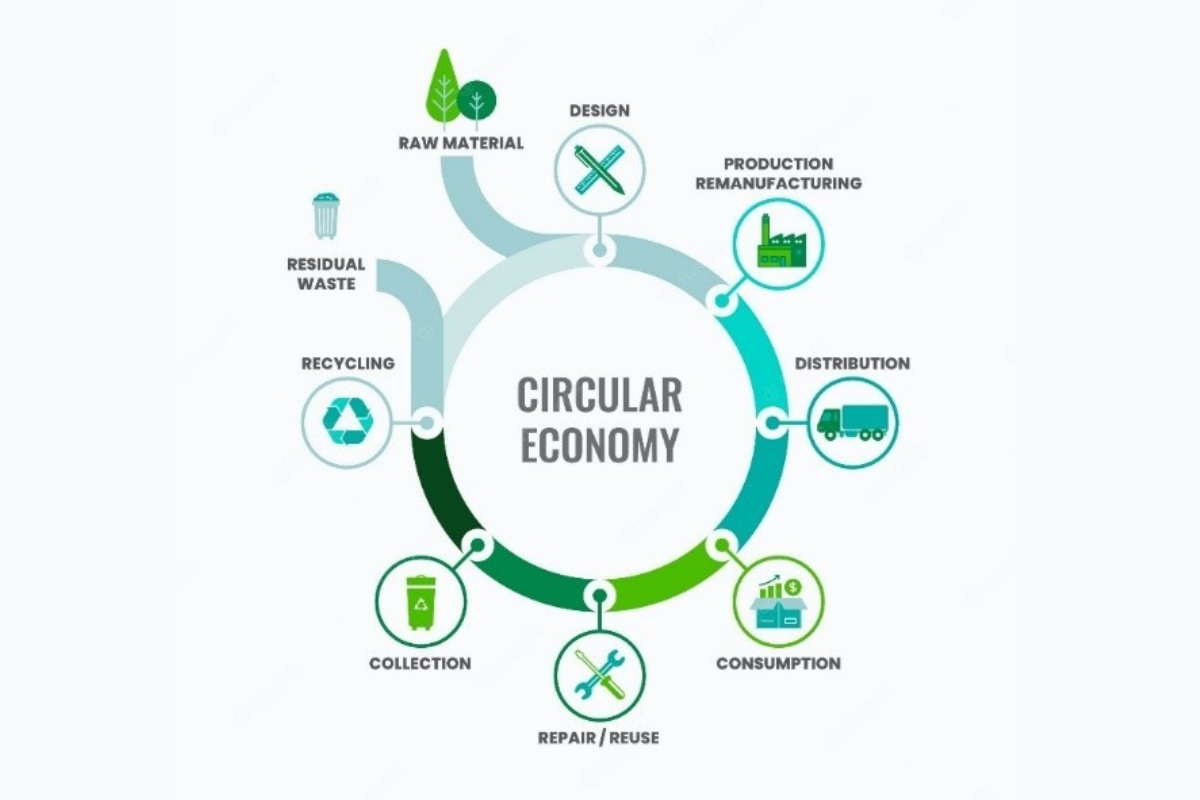
Dubai is actively advancing circular economy principles through comprehensive waste reduction initiatives and the development of sustainable supply chains.
Corporate Recycling and Waste Management Programs
Implementation of Comprehensive Recycling Initiatives:
Imdaad, a prominent Dubai-based facilities management company, has been at the forefront of innovative waste management. The company processes over 1,500 tonnes of waste daily, diverting approximately 120,000 tonnes from landfills annually. Their Material Recovery Facility (MRF), known as FARZ, plays a pivotal role by recovering over 12% of waste through advanced segregation processes. Additionally, the recent addition of a refuse-derived fuel (RDF) plant at FARZ has significantly boosted waste diversion efforts, diverting about 60,000 tonnes of waste from landfills each year. Plans are underway to enhance the plant's capacity further, aiming for greater landfill diversion.
Examples of Successful Waste Reduction Programs:
The Emirates Environmental Group (EEG), established in 1991, has been instrumental in promoting environmental conservation and waste reduction in the UAE. Through extensive recycling campaigns and public awareness programs, EEG has mobilized over 2,000 volunteers across the nation. In a notable drive, the organization collected 644,000 kilograms of recyclable materials, significantly contributing to waste reduction efforts.
Development of Sustainable Supply Chains
Companies Focusing on Sustainable Sourcing and Production:
Dubai's commitment to sustainable supply chains is evident through various initiatives. The Dubai Chamber of Commerce has published a comprehensive guidebook on sustainable supply chain management, emphasizing the importance of integrating environmental, social, and governance (ESG) considerations into procurement activities. The guidebook highlights best practices for companies aiming to enhance their supply chain sustainability, including responsible sourcing and production methods.
Impact on Overall Waste Reduction:
By adopting sustainable sourcing and production practices, companies in Dubai are effectively minimizing waste generation throughout their supply chains. These practices not only reduce environmental impact but also enhance operational efficiency and corporate reputation. The emphasis on sustainable supply chains aligns with Dubai's broader environmental goals and contributes to the city's transition towards a circular economy.
Green Transportation and Mobility Solutions
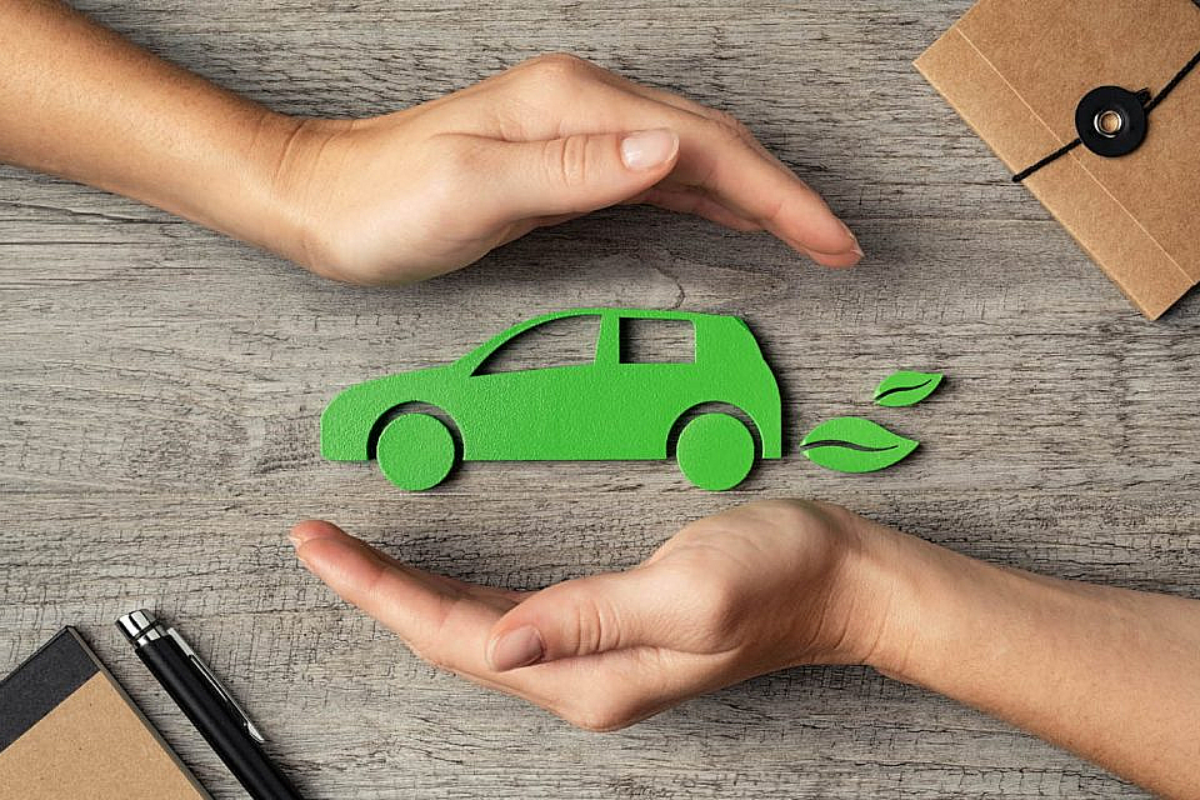
Dubai is making significant strides in green transportation and mobility solutions, with a notable increase in the adoption of electric and hybrid fleets among businesses and the promotion of sustainable commuting programs for employees.
Adoption of Electric and Hybrid Fleets
Corporate Integration of Electric Vehicles (EVs):
In recent years, there has been a marked increase in businesses incorporating electric vehicles into their operations. Ride-hailing services such as Careem and Uber have introduced electric vehicles into their fleets, contributing to the city's sustainable transportation goals.
Leading Companies in Green Transportation Initiatives:
- Careem: By 2023, 53% of Careem's trips in the UAE were completed using hybrid or electric vehicles. The company also expanded its EV fleet in Jordan, with electric vehicles comprising 45% of the fleet in Irbid. In 2024, Careem introduced Dubai's first fleet of electric motorbikes and established charging infrastructure at Careem Bike stations, aiming to reduce the carbon footprint of delivery trips by up to 24 tonnes of CO₂ per day.
- Dubai Police: In a pioneering move towards sustainability, the Dubai Police added Zeekr electric vehicles to their fleet in 2025, marking a significant milestone in the UAE's Vision 2030 commitment to sustainability.
Promotion of Sustainable Employee Commute Programs
Initiatives Encouraging Public Transit and Carpooling:
- Remote Work and Hybrid Schedules: By allowing employees to work from home or adopt hybrid schedules, companies can significantly reduce office energy usage and commuting emissions. A report by Global Workplace Analytics estimates that if everyone worked remotely half the time, greenhouse gas emissions could be reduced by 54 million tons annually.
- Sustainable Commuting Practices: Encouraging the use of public transportation, carpooling, and other sustainable commuting methods can significantly reduce an organization's carbon footprint. Embracing these practices not only reduces emissions but also enhances the organization's reputation and improves employee well-being.
Impact on Reducing Carbon Footprints:
The promotion of sustainable commuting practices has led to measurable reductions in carbon emissions. For instance, the adoption of Careem Bike in partnership with the Roads and Transport Authority (RTA) resulted in 2.8 million trips since its launch, reducing emissions by approximately 1,926,033 kilograms, equivalent to the emissions from 600 cars.
Sustainable Fashion and Eco-Friendly Consumer Products

Dubai is experiencing a notable shift towards sustainable fashion and eco-friendly consumer products, driven by both consumer demand and regulatory initiatives.
Emergence of Sustainable Fashion Brands
The city's fashion landscape is increasingly embracing sustainability, with several brands leading the charge:
- The Giving Movement: A Dubai-based brand that creates athleisure wear using recycled materials like plastic and bamboo. A portion of every purchase supports global charities, blending fashion with philanthropy.
- Reemami: A Dubai-based label that creates artistic, whimsical designs using organic and recycled materials. The brand empowers women artisans and advocates for gender equality in the industry.
- Dunesi: Founded by Hanne Ripsaluoma, Dunesi is Dubai's coolest sustainable denim brand. Born out of a passion for quality, style, and the planet, Dunesi blends classic designs with a modern – and conscious – edge. Each piece is crafted from sustainable materials using low-impact methods, making Dunesi jeans the go-to for those who want to look good while doing good.
Consumer demand for sustainable products is also on the rise. A 2024 global survey revealed that over 70% of consumers prefer to purchase from brands that demonstrate a commitment to sustainability. In 2025, businesses that fail to align with these expectations risk losing market share to competitors who are more environmentally responsible.
Development of Biodegradable Packaging Solutions
In response to environmental concerns, businesses in Dubai are increasingly adopting biodegradable packaging:
- Ecopap International: This company offers eco-friendly packaging solutions in Dubai, providing alternatives to traditional plastic packaging.
The environmental impact of these initiatives is significant. The UAE government has introduced various initiatives to promote sustainability and encourage the adoption of eco-friendly packaging materials. Despite challenges such as higher costs and limited availability, the shift towards biodegradable packaging contributes to reducing pollution and aligns with global sustainability goals.
Green Finance and Investment Strategies
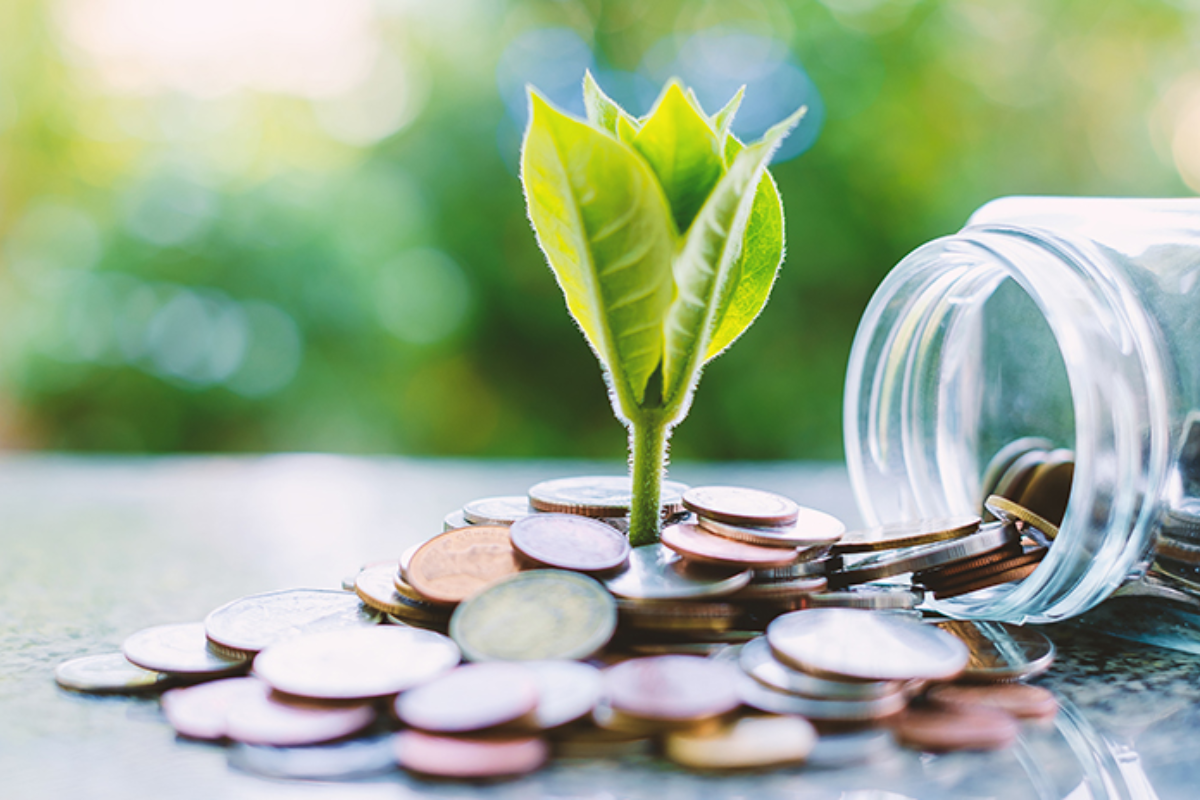
Dubai is witnessing a significant surge in green finance and sustainable investment strategies, reflecting a broader commitment to environmental stewardship and economic diversification.
Rise of Green Bonds and Sustainable Investment Funds
Increase in Green Bond Issuances by Dubai-Based Companies:
In recent years, Dubai has emerged as a regional leader in green bond issuances. As of January 2025, Nasdaq Dubai reported that Environmental, Social, and Governance (ESG)-linked issuances, including Green Bonds and Sustainability Bonds, have reached a total value of USD 29 billion. This growth underscores the city's dedication to sustainable finance.
A notable example is the USD 500 million Green Sukuk issued by Majid Al Futtaim, which was listed on Nasdaq Dubai. The proceeds from this issuance are allocated to refinance existing debt, aligning with the company's sustainability objectives.
Growth of Sustainable Investment Funds in the Region:
The UAE's commitment to sustainable investment is further evidenced by the establishment of significant funds aimed at promoting green initiatives. In 2024, the UAE announced plans to invest up to AED 200 billion (USD 54.5 billion) to enhance clean energy capacity and production by 2030, signaling a strong dedication to sustainable development.
Incentives for Sustainable Business Practices
Government and Financial Institution Incentives for Green Businesses:
The UAE government has implemented various incentives to encourage sustainable business practices. Notably, during COP28 in December 2023, the UAE banking sector committed AED 1 trillion (USD 270 billion) towards sustainable finance initiatives by 2030, demonstrating a robust support system for green businesses.
Impact of Incentives on Promoting Sustainable Investments:
These incentives have significantly bolstered the sustainable investment landscape in Dubai. The increased availability of green financing options has enabled companies to pursue environmentally friendly projects, contributing to the city's reputation as a hub for sustainable development. The proactive approach of both the government and financial institutions has been instrumental in fostering a culture of sustainability within the business community.
Technological Innovations Driving Sustainability
Technological innovations are playing a pivotal role in advancing sustainability across various industries, enabling businesses to minimize their environmental impact while enhancing operational efficiency.
Advancements in Sustainable Technologies
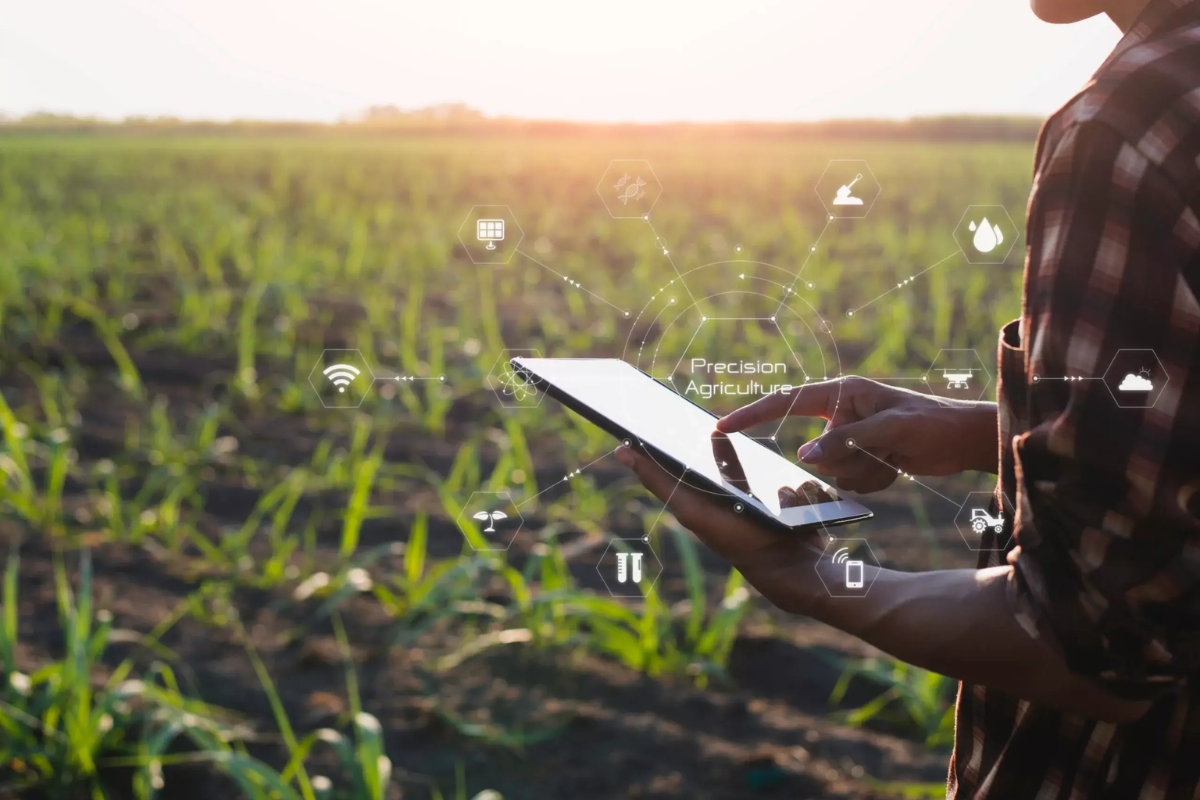
Recent developments in sustainable technologies are providing businesses with tools to reduce their ecological footprint:
- Precision Agriculture: Companies like John Deere have introduced fully autonomous tractors equipped with advanced sensors and AI, allowing for precise application of inputs such as fertilizers and pesticides. This technology not only optimizes resource use but also minimizes environmental impact by reducing chemical runoff.
- Carbon Management Platforms: Emerging technologies, such as carbon management software platforms powered by artificial intelligence, are helping businesses navigate new regulations, meet reporting standards, and ensure robust carbon management practices within complex supply chains.
Role of Digital Transformation in Sustainability
Digital tools are instrumental in helping businesses monitor and improve their sustainability metrics:
- Sustainability Management Software: Platforms like SAP's Green Ledger enable companies to track and report on various sustainability metrics, ensuring compliance with regulations such as the European Corporate Sustainability Reporting Directive (CSRD). These tools facilitate accurate data collection and analysis, making sustainability reporting as reliable as financial reporting.
- Blockchain and Digital Twins: The integration of blockchain technology with digital twins offers a promising approach to sustainable business decision modeling. This combination enhances data transparency, security, and accessibility, supporting informed decision-making that aligns with sustainability goals.
Challenges and Opportunities
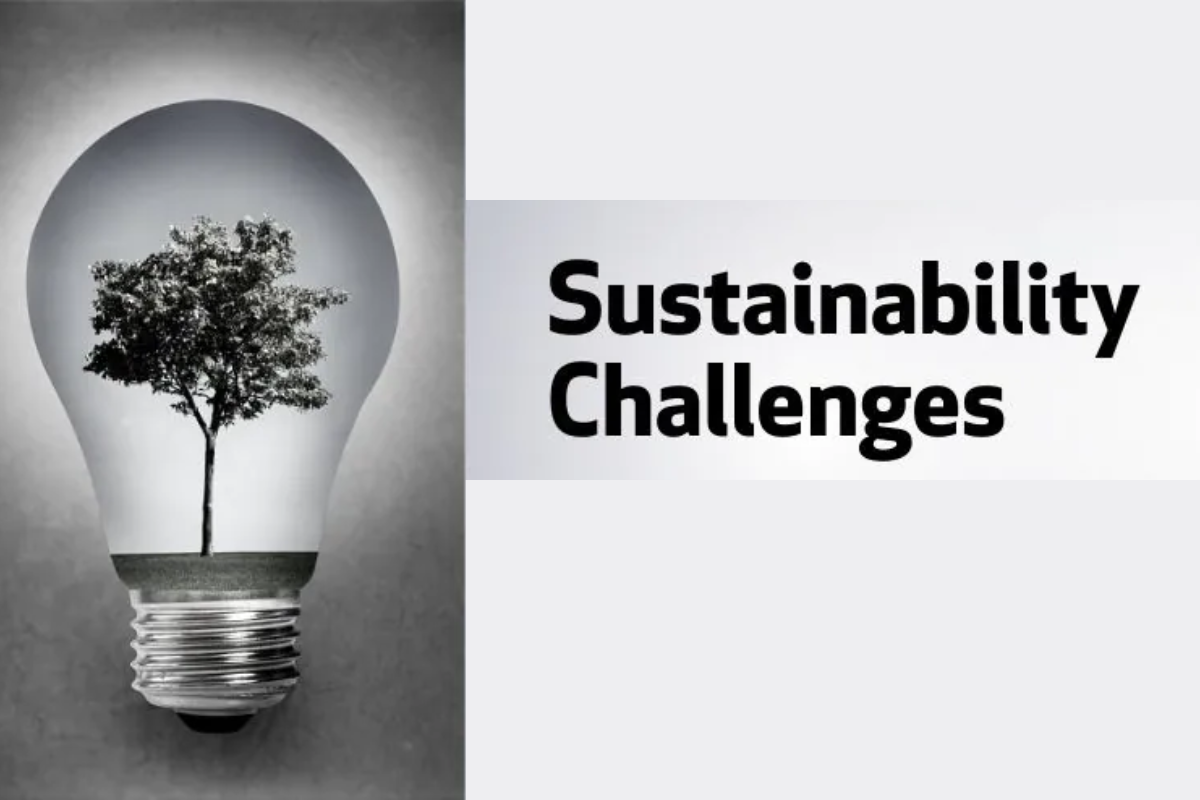
Implementing green business practices in Dubai presents both challenges and opportunities as companies strive to align with global sustainability standards.
Barriers to Implementing Green Business Practices
Businesses in Dubai encounter several obstacles when adopting sustainable practices:
- Financial Constraints: The initial investment required for sustainable technologies and infrastructure can be substantial, deterring especially small and medium-sized enterprises (SMEs) from pursuing green initiatives.
- Lack of Clear Guidelines: Many corporations in the Middle East and North Africa (MENA) region face challenges due to the absence of region-specific guidelines and best practices tailored to the local context. This ambiguity complicates the implementation of effective sustainability reporting and practices.
- Cultural and Lifestyle Practices: Changing established lifestyle practices and achieving public engagement in sustainability initiatives can be challenging. Efforts like Dubai's Sustainable City have faced hurdles in gaining the expected traction due to these factors.
Strategies to Overcome Challenges
To navigate these obstacles, businesses can employ several strategies:
- Accessing Sustainable Finance: The emergence of green bonds and sustainable investment funds in Dubai provides businesses with opportunities to secure funding for eco-friendly projects. For instance, the UAE banking sector has committed significant resources towards sustainable finance initiatives by 2030, offering financial solutions that encourage investment in sustainable projects.
- Leveraging Technology: Investing in smart technologies, such as Artificial Intelligence (AI) and the Internet of Things (IoT), can help monitor and optimize energy, water, and resource usage, leading to cost savings and reduced environmental impact. Companies like Etisalat are leading this trend in the UAE.
- Employee Education and Engagement: Providing training programs to ensure employees understand and contribute to sustainability goals fosters a culture of environmental responsibility within the organization.
- Adopting Circular Economy Principles: Implementing practices that focus on reusing, recycling, and reducing waste can mitigate environmental impact. Retail companies like Carrefour UAE are eliminating single-use plastics and promoting reusable products as part of their sustainability initiatives.
Case Study: Majid Al Futtaim's Green Sukuk
Majid Al Futtaim, a leading retail and leisure pioneer in the Middle East, issued a USD 500 million Green Sukuk listed on Nasdaq Dubai. The proceeds are allocated to finance and refinance green projects, including green buildings and renewable energy initiatives. This move not only underscores the company's commitment to sustainability but also sets a precedent for other businesses in the region to follow.
Future Outlook
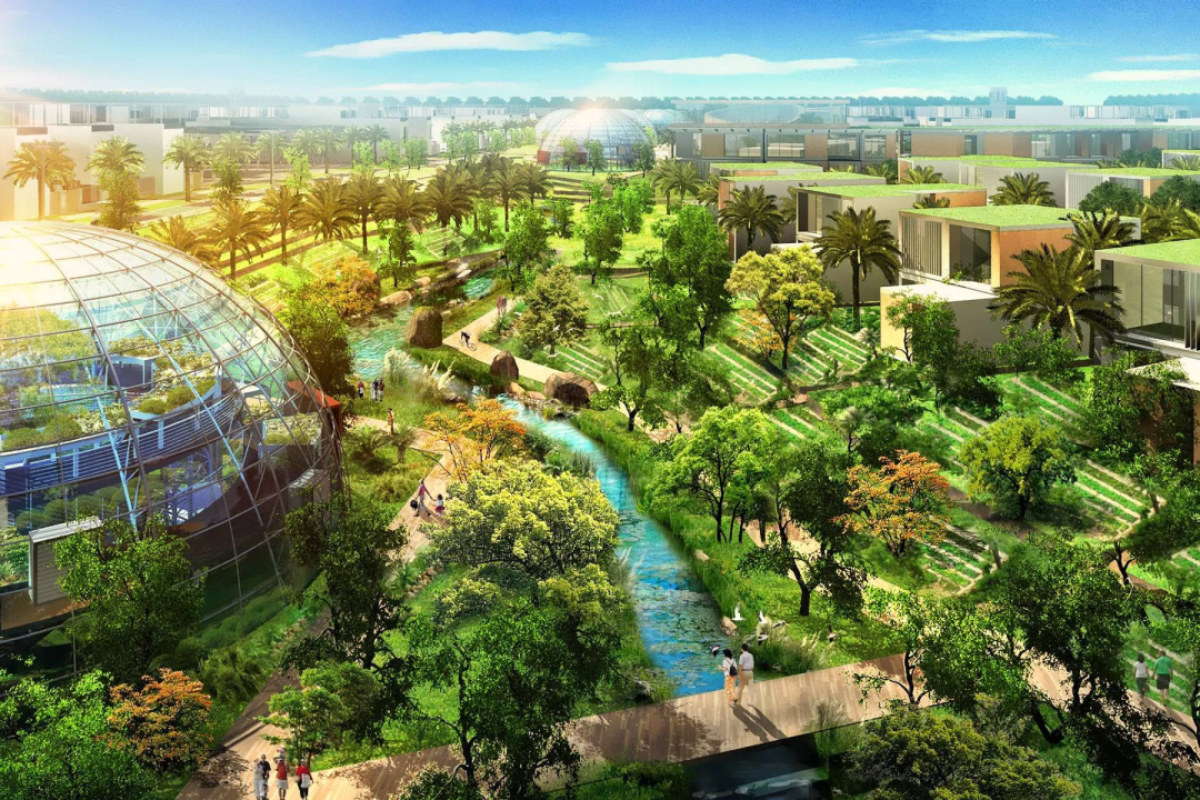
Dubai is poised for significant advancements in sustainable business practices, driven by ambitious governmental strategies and increasing private sector engagement.
Predicted Trends in Green Business Practices
- Expansion of Renewable Energy Projects: The UAE is rapidly increasing its investment in renewable energy, making it the fastest-growing renewables market outside China. A notable development is the UAE's recent announcement of a $6 billion, 5-gigawatt solar plant with substantial battery storage, aimed at providing consistent power output.
- Growth in Green Technologies: Dubai's commitment to sustainability is evident in its strategic plans, such as the 'Dubai Clean Energy Strategy 2050,' which aims to source 75% of its energy from clean sources by 2050. This initiative is driving innovation and investment in green technologies, positioning Dubai as a leader in sustainable urban development.
- Rise of Sustainable Tourism: The UAE sustainable tourism market is projected to grow from USD 40.34 million in 2023 to USD 164.62 million by 2033, reflecting a compound annual growth rate (CAGR) of 15.10%. This growth is driven by the nation's efforts to transform its economy into a low-carbon green economy, thereby encouraging sustainable tourism practices.
Long-Term Impact of Green Business Trends
The ongoing emphasis on sustainable practices is expected to yield substantial long-term benefits for Dubai's economy and environment:
- Economic Diversification and Growth: Investments in renewable energy and green technologies are anticipated to diversify Dubai's economy, reducing reliance on fossil fuels and fostering new industries. The global green technology and sustainability market is projected to reach nearly $62 billion by 2030, growing at a CAGR of 20.8% from 2023 to 2030. This trend suggests significant economic opportunities for Dubai in the green sector.
- Environmental Benefits: The implementation of large-scale renewable energy projects, such as the 5-gigawatt solar plant, is expected to significantly reduce greenhouse gas emissions, contributing to improved air quality and public health. Additionally, the shift towards sustainable tourism and green technologies will aid in conserving natural resources and promoting environmental stewardship.
Dubai’s commitment to green business practices is reshaping its economic and environmental future. With rapid advancements in renewable energy, sustainable technologies, and eco-friendly investments, the city is setting a global benchmark for sustainability. While challenges remain, the push for innovation, strategic policies, and corporate responsibility are paving the way for a greener, more resilient economy. As Dubai moves toward its 2050 sustainability goals, businesses that embrace these changes will not only thrive but also contribute to a lasting positive impact on the planet.
Also Read:
